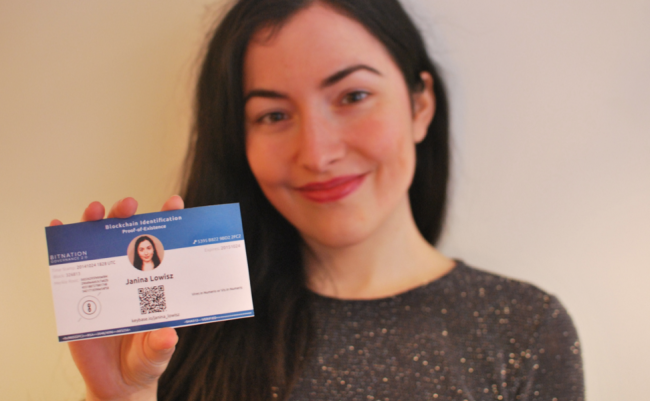Inspiring stories about entrepreneurs are a key way I learn more about connecting technology with human problems, which is why I want to share this particularly interesting story about the power of listening to customers––a story that will take you onto the Ethereum blockchain by way of Afghanistan, refugee camps, and the halls of the United Nations.
This success story doesn’t start with a visionary hero at a white board banging out “killer app” ideas in a vacuum.
It starts with Susanne Tarkowski Tempelhof, Founder and CEO of Bitnation, living in a makeshift refugee quarter in Northern Italy.

“I had a company in Afghanistan a few years ago, and as the situation got worse there, a lot of my close ex-employees fled to Europe. So when they came to Europe they asked me to help them with their political asylum requests,” Tempelhof told me in December, 2018.
“I went through all the paperwork, got some pro-bono legal advice from lawyer friends, and moved in with them for a couple of months in Northern Italy to try to assist. It was a very long and hard process, so I started to think of alternative methods.”

Bitnation Founder and CEO Susanne Tarkowski Tempelhof
Tempelhof started brainstorming solutions with the Bitnation community while the plight of refugees wasn’t just fresh in her mind, it was all around her.
“We looked into the European Union regulations and realized that if we could prove that someone had close relatives (i.e. parents, children, or siblings) in one country, they are more likely to be able to travel there to apply for asylum,” said Tempelhof.
“So we spent a couple of weeks designing it using the blockchain for P2P family verifications… and then released it. It complies to all EU standards of an official ID.”
The benefits are dramatic for those seeking asylum. Imagine fleeing your homeland with nothing. Without identification it would be difficult for you to gain permanent residency in a safer country, much less housing, work, or even a simple bank account. A Bitnation EU-compliant identification card that verifies close relationships with existing residents can make the difference.
Around 5000 people used Bitnation’s notarized ID service when it was released as a proof-of-concept in 2015, according to Tempelhof, and it went on to win a prestigious UNESCO award and international acclaim in 2017.
Today Bitnation partners with Estonia’s e-Residency program and is looking to leverage its growing international recognition to serve new communities, including many more refugees.
Another thing that makes Tempelhof and Bitnation particularly inspiring is that they managed to do all this in the blockchain space where user-centered design hasn’t gotten much traction yet.
That makes them a particularly inspiring bright spot, and one we can all learn from.

